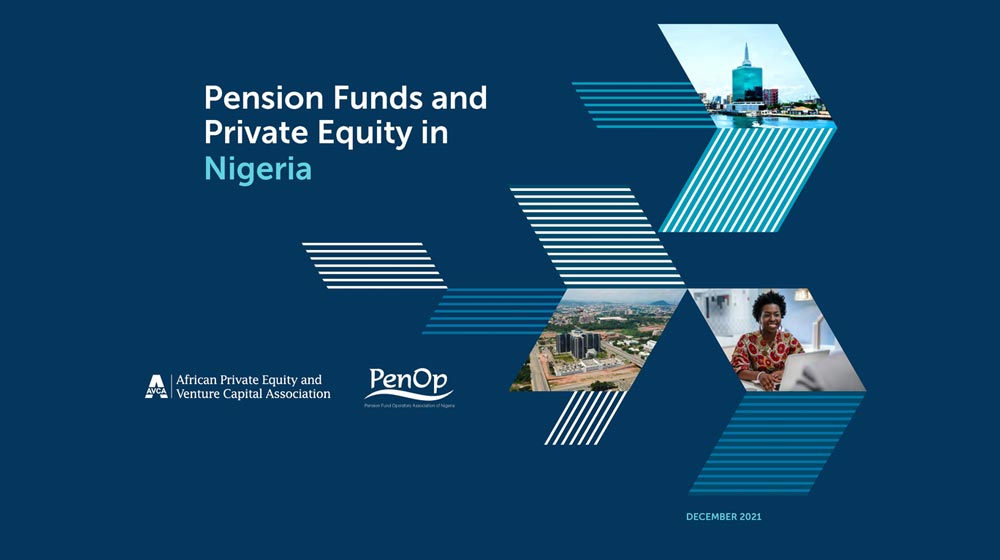
The release of this flagship report aims to bridge the gap between these two complimentary industries by investigating and assessing the role of Nigerian pension funds in empowering local investors in Nigeria’s private equity industry
LONDON, United Kingdom, December 14, 2021/ — The African Private Equity and Venture Capital Association (AVCA) (www.AVCA-africa.org) and the Pension Fund Operators Association of Nigeria (PenOp) are pleased to release the first ever report on Nigerian Pension funds engagement with private equity. The report incorporates responses from Nigeria’s leading pension fund managers, exploring their interest and perception of private equity as an asset class.
Nigeria’s pension fund industry has grown at an impressive CAGR of 18% over the last five years, culminating in an asset base of ₦12.3 trillion (US$29.9 billion) as at December 31st, 2020. Although there has been a concerted effort by both sets of industries to increase the level of pension allocation to private equity, the allocation of Nigeria’s pension funds to the asset class has traditionally been low when compared to their allowable limits. The release of this flagship report aims to bridge the gap between these two complimentary industries by investigating and assessing the role of Nigerian pension funds in empowering local investors in Nigeria’s private equity industry.
The Pension Funds and Private Equity in Nigeria Report finds that Nigerian pension funds display a strong appetite for private equity investment both locally and across the continent. 75% of the pension fund managers that participated in the survey plan to accelerate or maintain their current pace of capital commitments to African PE in the next five years, citing a desire for portfolio Diversification and Performance as the most important factors driving their investment plans.
The report also catalogues some of the obstacles faced by pension funds investing in the asset class. Respondents highlighted a perceived weak exit climate and a limited number of established African GPs as significant challenges for pension funds investing in African private equity. However, 49% of survey participants did not consider any of the current pension investment regulations to be prohibitive, suggesting that respondents view the existing regulatory environment as conducive for investment in alternative asset classes.
Speaking on the publication, the CEO of AVCA, Abi Mustapha- Maduakor, said “Increasing interest in Africa’s private equity industry from domestic and international investors alike underscores the need to analyse the perceptions and concerns of institutional investors to promote an open dialogue on the continent’s unique business environment. This joint publication exemplifies AVCA’s commitment to championing private investment in Africa: bridging the knowledge gap between industry stakeholders by providing topical, informative research on the opportunities private equity has to offer Nigerian pension funds.”
Oguche Agudah, the CEO of PenOp said “Local pension funds have expressed a desire to increase their allocation to private equity and more impactful investments. However, there are a number of bottlenecks that restrict them. The partnership with AVCA helps us to work with industry stakeholders to identify and address these bottlenecks for our mutual benefit, and the benefit of the local economy”.
Download the report here (https://bit.ly/3m2MtZk)
Distributed by APO Group on behalf of African Private Equity and Venture Capital Association (AVCA).


